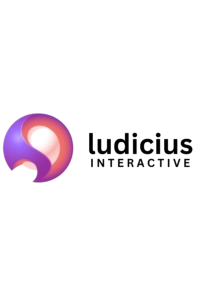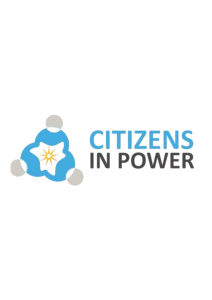ARCHTECH
Empowering Youth to Rediscover Europe’s
Architectural Legacy
About Project
ArchTech is an innovative initiative that bridges the gap between European architectural heritage and digital technology, aiming to inspire young people to actively engage with and protect their urban cultural landscape. Rooted in the belief that architectural heritage is a vital element of European identity, the project seeks to enhance awareness of built heritage among youth while promoting digital upskilling and civic participation.
By leveraging the popularity of mobile technology, ArchTech empowers youth workers and young individuals, including those from vulnerable backgrounds, to co-create digital tools such as mobile applications and guided digital tours, making heritage more accessible and engaging.
Through interdisciplinary training modules, field activities, and community-driven initiatives, the project not only fosters a sense of belonging and responsibility but also aligns with key EU policies on cultural heritage preservation and youth digital education. With a strong collaborative framework across five European countries, the project contributes to an inclusive and technologically adept society where historical preservation and social innovation go hand in hand.

Honoring history, shaping the future – ArchTech is redefining how Europe’s architectural heritage is experienced, preserved, and revitalized. By seamlessly blending cultural preservation with digital innovation, we empower young minds to connect with their surroundings through immersive technologies and interactive storytelling. Through tools like mobile applications, virtual tours, and augmented reality experiences, we make historical sites more accessible, engaging, and meaningful.
Our mission goes beyond mere education; it seeks to inspire young people, especially those from vulnerable or multicultural backgrounds, to recognize the value of their cultural heritage. By fostering a deeper sense of belonging and responsibility, ArchTech encourages the active participation of youth in safeguarding and celebrating Europe’s rich architectural legacy for future generations.
Results
Work Package 1 (WP1): Project Management provides the backbone for the project’s success, ensuring efficient coordination, financial transparency, risk mitigation, high-quality deliverables, and stakeholder engagement. Through structured management and continuous monitoring, it ensures the project meets its objectives while fostering inclusivity, digital transformation, and sustainability.
Work Package 2 (WP2): ArchTech Modular Training for Youth Workers aims to equip youth workers with knowledge, tools, and digital skills to engage young people (16-35) with European Built Cultural Heritage, fostering civic participation, social inclusion, and digital literacy. The work package offers five training modules covering heritage awareness, urban identity, data collection, and mobile app development for heritage protection. Key objectives include empowering youth workers with new training materials, highlighting the European dimension of built heritage, promoting social inclusion through cultural engagement, and enhancing digital skills for heritage documentation. The training will explore heritage as a lever for identity and community participation, introduce heritage buildings across five European cities, teach digital data collection techniques, and guide participants in creating a ‘Buildings Alert!’ mobile app.
Work Package 3 (WP3): Digital Guided Visits to Cultural Heritage Buildings aims to enhance youth engagement with European Built Cultural Heritage by creating interactive digital maps featuring 60 selected heritage buildings across five partner cities. Expanding on WP2’s heritage module, WP3 transforms architectural sites into accessible digital narratives, fostering civic participation, social inclusion, and digital literacy. It aligns with EU policies on heritage preservation by using digital technology to connect young people with historic landmarks and inspire coordinated civic action. The key objectives include identifying and documenting heritage buildings, creating digital narratives, developing interactive maps, and piloting the maps with youth workers and young people. Each city-specific map will include five heritage buildings marked with digital pins, providing text, visuals, and downloadable content for self-guided urban exploration. WP3 will also train youth workers in cultural heritage interpretation and digital storytelling.
Work Package 4 (WP4): ArchTech Mobile Application aims to empower youth workers and young people (16-35 years old) to apply their digital skills and cultural heritage knowledge by developing a mobile app for heritage protection. WP4 focuses on engaging young people in collective action to preserve endangered buildings in their cities. The key objectives include practical application of mobile app development training, enhancing digital skills, raising awareness of local architectural heritage challenges, and mobilizing youth for civic engagement. The “Buildings Alert!” mobile app will provide an interactive platform where users can document, report, and share information on at-risk buildings, creating a bridge between citizens, authorities, and preservation efforts. WP4 will involve youth workers and young people in roundtable discussions, pilot testing, and app development.
Work Package 5 (WP5): Dissemination, Exploitation & Sustainability aims to maximize visibility, engagement, and long-term impact of the ArchTech project by effectively communicating its findings, mobilizing stakeholders, and ensuring sustainability beyond the project’s duration. WP5 integrates communication, dissemination, and exploitation strategies to broaden outreach, share best practices, and influence policies on European Cultural Built Heritage protection. Key objectives include developing sound communication strategies, engaging stakeholders and policymakers, promoting project outcomes, leveraging synergies with other EU initiatives, and ensuring long-term accessibility of resources. The work package will establish a project website, social media platforms, newsletters, blog posts, media campaigns, and stakeholder engagement events to drive awareness and impact.
Partners






Funded by the European Union. Views and opinions expressed are however those of the author(s) only and do not necessarily reflect those of the European Union or the European Education and Culture Executive Agency (EACEA). Neither the European Union nor EACEA can be held responsible for them. No’ 2023-2-FR02-KA220-YOU-000174646
